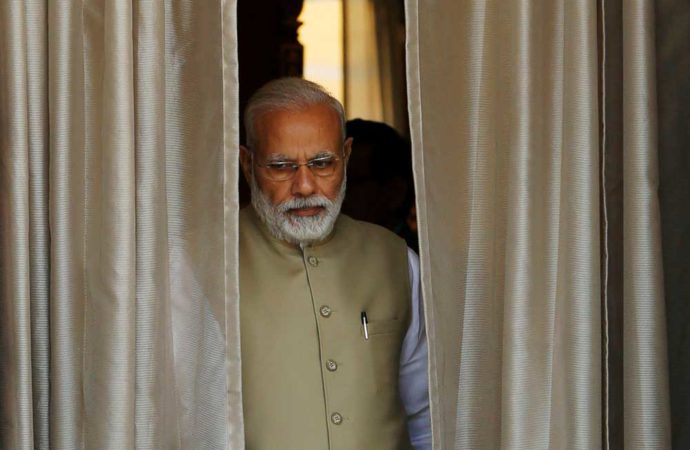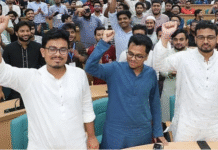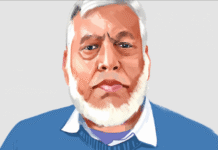Nadeem Qadir
The ball is in India’s court
It appears that the dust kicked off with the visit to India by Prime Minister Sheikh Hasina is slowly settling down and I feel that we in Bangladesh have failed to realise a very important point: Whether it’s Teesta or Indo-Bangla ties, it is now a challenge for Prime Minister Narendra Modi.
Such sensitive bilateral visits are aimed not at winning or losing theory, but figuring out how to further develop ties and give new impetus. That, I believe, has been achieved more than what experts claim.
A simple assessment of statements can prove my point.
Modi has promised to find an “early solution” to the Teesta water-sharing problem before the end of his term in office.
“Along with our shared land boundaries are our shared rivers. They sustain our peoples and their livelihoods. And, the one that has attracted the greatest attention is the Teesta. This is important for India, for Bangladesh, and for India-Bangladesh relationship,” said Modi.
To Hasina, he said: “It is only your government and mine who can find a solution to the Teesta problem.”
Which means the Teesta river water-sharing issue must be resolved before the 2019 general elections.
It is time for Modi to rise as a true leader at this very important time in Bangladesh-India relations, simply by keeping his word
On her part, Sheikh Hasina was assertive: “We strongly believe our common water resources must act as a uniting force. A comprehensive, basin-wide solution with an in-built solution to water-sharing of all common rivers holds the key to our common future.”
Modi has once again reiterated his government’s strong resolve to sign the water-sharing treaty as soon as possible. Sheikh Hasina added: “Once it happens, the phase of Indo-Bangladesh relations will undergo another transformation.”
This visit is a huge signal to India and Modi about how India stands to gain stronger and more beneficial relations with a trusted friend called Bangladesh or else face the consequences.
The Teesta deal, which has been obstructed by West Bengal Chief Minister Mamata Banerjee, has turned into a huge political issue; and to maintain diplomacy in trying times of harsh critique about her ties with India, Sheikh Hasina has done the best she could, politically.
It is for India to understand that solely because of Teesta, it stands to lose its popular support from the Bangladeshi people. Even general elections in 2019 may have wide implications for Sheikh Hasina as the BNP-Jamaat (pro-Pakistani) groups are spreading false propaganda dubbed “selling out to India.”
Although the opposition or pro-Pakistani elements have not been able to state what has been sold, but in a country where the rate of illiteracy is still high and border issues create anti-India sentiments among a huge population, one must keep in mind the influence of such propaganda.
Modi also needs to explain if West Bengal is a pseudo-independent state of India, which is capable of dismissing a deal at the expense of geo-political security and needs of India and Bangladesh.
Mamata needs water for her farmers, too. But the need is greater for Bangladesh, as it not only needs the water for its farmers but, more importantly, to stop the process of desertification of the area through which the Teesta flows.
Thus, both Bangladesh and India need to work hand-in-hand with confidence to counter terrorism, fight Pakistani influence in Bangladesh, and above all, make economic gains for the betterment of the lives of its peoples.
It is now a challenge not for Sheikh Hasina, but for Modi, as the Bangladeshi leader has passed the ball to her Indian counterpart. For Bangladesh, it is clear that without an amicable Teesta agreement, strengthening ties further with India is quite impossible because of the general sentiment of its people.
For Sheikh Hasina, building stronger ties with India further is out of the question without Teesta, because she cannot afford such ties at the expense of losing in politics due to the damage that an inadequate water supply will cause in her country.
It is time for Modi to rise as a true leader at this very important time in Bangladesh-India relations, simply by keeping his word.
Nadeem Qadir is the Press Minister of the Bangladesh High Commission in London.
Source: Dhaka Tribune











Promises are made to be broken, mr Nadim should know.